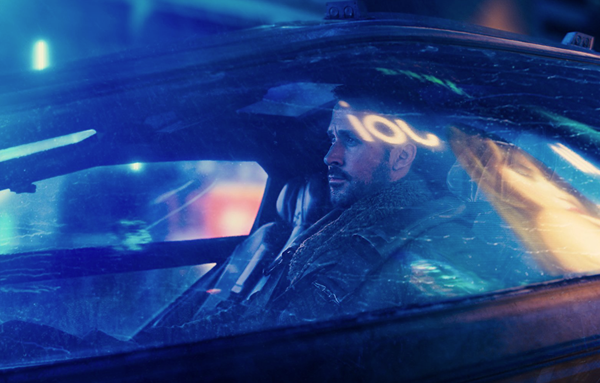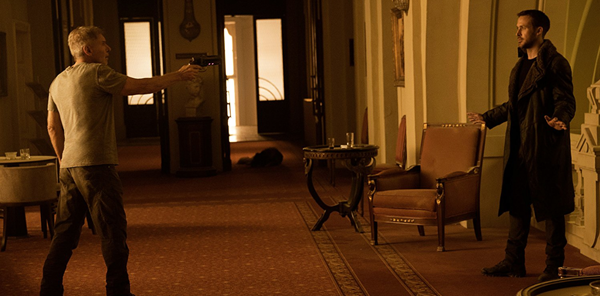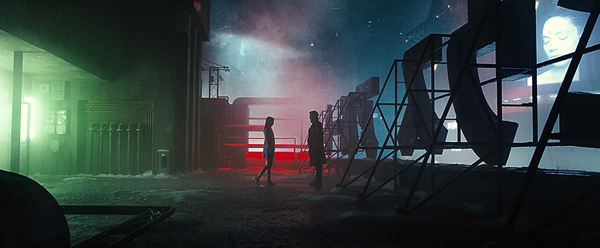
35 years ago, Harrison Ford and director Ridley Scott, hot off the heels of Raiders of the Lost Ark and Alien respectively, teamed up for the ambitious sci-fi noir Blade Runner. Though initially considered a failure, stopping just short of recouping its budget at the box office, the film garnered minor critical praise and would later develop a cult following for its moody futurism and philosophical musings. Now, after years in development, the sequel has arrived.
Blade Runner 2049 does everything in its power to replicate what made the original such a cult hit, and for the most part it succeeds. The hazy, rainy cityscape lit by innumerable neon advertisements is beautifully restored and feels like a natural progression rather than cheap imitation. Roger Deakins’ cinematography makes every shot a painting of a gloomy and gorgeous future, showing yet again why he’s one of the best. The story, too, keeps the thoughtful ponderings of both films’ source material, Philip K. Dick’s novel Do Androids Dream of Electric Sheep? The question of what it means to be human underpins the tale of a replicant (Gosling) who hunts down obsolete, runaway replicants and finds evidence that two of them somehow reproduced.

With such a meticulously realized world and an intriguing story that works on many levels, it’s a shame the whole equals less than the parts. Though never boring, the 164-minute run time includes about 45 minutes worth of interesting but unnecessary scenes that would have been better used as bonus DVD material. A subplot, in which Gosling’s glowering blade runner “K” falls in love with a hologram version of Alexa, serves mainly as exposition, while also coming dangerously close to uncomfortable. Jared Leto’s antagonist feels superfluous as well. As the eccentric CEO of the corporation that invented replicants, he provides a face to the evil that would have been more menacing had it remained mysterious. His replicant assistant, Luv (Sylvia Hoeks), is far more interesting anyway, and the true villain of the film. As well as the plot, the soundtrack could also use a heavy editing hand. Co-composed by Hans Zimmer, the score could benefit from half as much bwAAAAOOw.
Despite the overlong film’s shortcomings, director Denis Villeneuve’s minor misstep doesn’t diminish his talents. Blade Runner 2049 is an excellently crafted sequel worthy of its predecessor: a box-office bomb and a critical hit. Maybe in another 35 years it too will be a cult classic.














